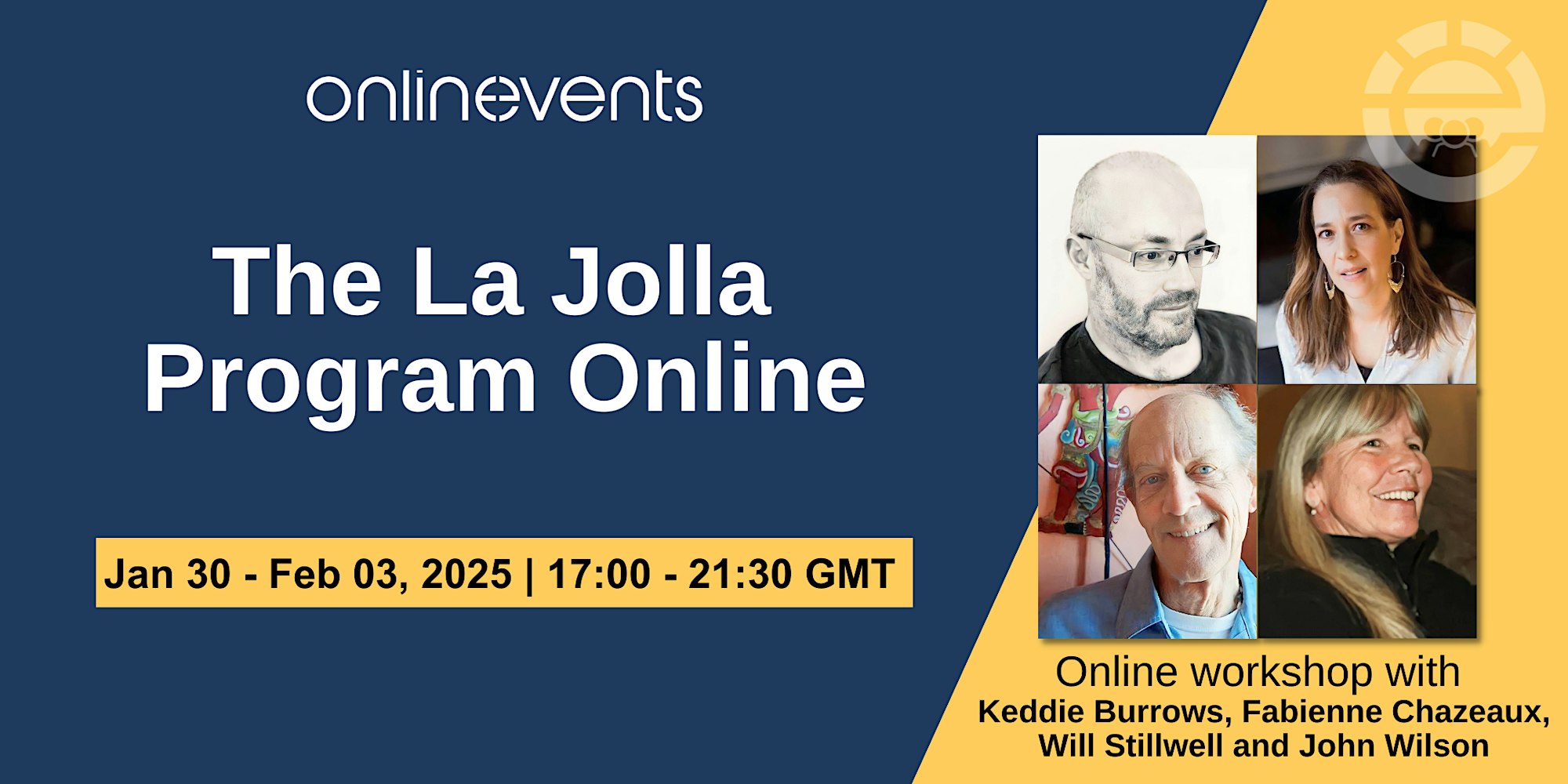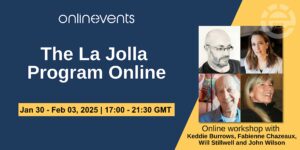About this event
WHO WE ARE, WHAT YOU MIGHT EXPECT WITH US
“Persons travel side by side for years, each locked up in their own silence or exchanging those words which carry no freight – till danger comes. Then they stand shoulder to shoulder. They discover that they belong to the same family. They wax and bloom in the recognition of fellow beings. They look at one another and smile. They are like the prisoner set free who marvels at the immensity of the sea.” Antoine de St. Exupery
An invitation:
Let us be creative and come together, immerse ourselves in a continuing journey of a group experience to learn and to grow.
We believe that through participating in bringing about an environment in which each person can feel free to be who they are, in their uniqueness and in their own style of expression, all are more likely to experience a sense of belonging and deep connection – within themselves and with one another.
We need not cook-up a danger. Openness to personal change; being in moments without agenda for accomplishment; allowing for unexpected, emerging experiences; listening to our feelings and deeper truths and dreams in our interactions with each other — these are positive practices in personal attitudes that will help us become “a community in which every soft voice, every subtle feeling has its respected place” (Carl Rogers).
The La Jolla Program:
was founded in 1966, as part of American psychologist Carl Rogers’ work bringing discoveries from his approach in personal psychotherapy to a format fostering further social as well as individual growth. We arise from and continue that person-centered tradition. We carry it in our sixth decade of practice into an on-line medium, and the challenges we all face in the twenty-first century.
Our facilitated group process serves as a learning laboratory. Each facilitator practices her or his person-centered way. Facilitators do not “do something” to other participants; rather the energies, the choices, the decisions are made by all group members.
At times making sense of one’s own experiences may be difficult. At times these groups can become uncomfortable, can manifest conflicts. Sometimes we find the emerging multiple realities hard to be-with. We work to strengthen our empathy, honor our individual selves, and accept – even care-for – others and their worlds.
At the La Jolla Program we meet one another on our similarities and can discover our mutual differences – the differences that make a difference. What difference? The one that awakens my own adaptive creativity, my potentials to be someone I haven’t experienced in a while, or ever before. And my differences with you in your presence may awaken in you a difference with me.
Differences we discover when we meet are exciting – comforting, challenging, caring, chancing.
We plan to use the Zoom platform and its facilities with breakout rooms for small group activities and more intimate contact if needed.
The group will last for 4 hours and 30 minutes each day from Thursday 30th of January to Monday 3rd of February 2025.
The start time each day will be 5pm UK Time.
ZOOM
This workshop will be hosted on the Zoom meeting platform where we will use our camera and microphones to interact with each other as a group.
SELF-SELECT FEE
The self-select fee is a radical inclusion policy to open learning for all colleagues. The guide price for this event is £297.00, however, we appreciate that income varies greatly in different locations and circumstances. Please contribute what you can to help us maintain inclusive professional training.
___________________________
All the colleagues at ONLINEVENTS and the presenters we collaborate with are committed to working in a manner consistent with the BACP Ethical Framework, which can be accessed on the link below. When registering for this event you are agreeing to be present and interact in a manner that is consistent with this Framework.
Keddie Burrows

My initial exposure to Carl Rogers and the Person Centered Approach was in 1968. The term at that time was, Client Centered Therapy. I participated in the first La Jolla Program at a University in La Jolla California, where we lived in dorms and stayed for 3 weeks. I was just 16 at the time and had recently been through some traumatic events in my life. My father, Earl Burrows, was a member of the Center for Studies of the Person and worked with Carl, which gave me access to the La Jolla Program and Carl Rogers.
The way I interpreted the “Core Conditions” of the Person-Centered Approach, was maybe different than some, due to my age and my life experience to that point in my personal development. I, unlike most of the other participants, was not involved to become a better therapist or to use these skills for professional purposes. My connection, curiosity, and desire to learn all I could was simply to challenge myself to be the kind of person that I believed in becoming. Subsequently, I have always experienced the “core conditions” as deep personal values to aspire to and not a tool or skill.
The influences of my religious upbringing and my experience at that La Jolla Program, profoundly affected who I have been throughout my life. I have challenged myself to become a person who genuinely did not judge others. For the past 54 years when I do feel judgmental about a person or situation, I begin a process of exploring what is it in me that is causing that feeling. I also remind myself that I have no idea what that person’s life experience has been so, how can I judge them?
Whenever possible, whether in a professional or personal situation, I try to listen to the other person. I “listen” to their words, body language and expressions. I am very fortunate as I am a very curious person. I truly enjoy getting to learn about how other people view the world and their own personal experiences in life. I am fascinated with “listening” to them on many levels, both their verbal and non-verbal communication. I enjoy trying to “hear” the context of what another person is saying to help me understand their experience. This is my way of being empathetic.
I wanted to be congruent, to be able to be honest in expressing myself. For me, congruence means being able to express the feelings I have while not putting them on another person, owning them personally. Voice inflection, body language and words both individually and together can cause a person to feel judged. As a result, I challenged myself to be congruent and pay attention to my reasons for holding back when I noticed I was avoiding being truthful.
I found that unconditional positive regard is the result of working so hard on the values I expressed above. I personally, believe that the “Core Conditions” are meant to be present at the same time. Congruence without Unconditional Positive Regard is something that feels judgmental to me. Unconditional Positive Regard without Congruence feels disingenuous. These assertions are simply my own based on me and my own experience.
I have worked for many years with people who do not either communicate with verbal language or have a different way of communicating. Being person centered, this process of communicating and listening has expanded my senses in finding ways to “hear” the person and return communication. This process has been such a gift in my life as it requires “being person centered” because there is no other way to communicate or model empathy, unconditional regard, congruence, and acceptance of the person.
This information is to give you a little background on who you can expect me to be when I participate in any groups. The skill I bring is simply being me.
Will Stillwell

Will Stillwell, Ph.D., is a long-time member of the professional-personal community, The Center for Studies of the Person, in La Jolla California. There, somewhat retired now from his consulting and academic career, he continues his thirty-seven year association with work at The La Jolla Program. In the Program’s encounter process — originally inspired and supervised by Carl R. Rogers — participants share, risk, and learn to build safe and supportive personal and social enviro0nments together. He is author of a number of articles and books. Through his directorship of the Rogers Memorial Library he has curated and edited a number of video productions concerned with Person-Centered approaches.
Fabienne Chazeaux

Fabienne Chazeaux has been facilitating in Person-centred Psychotherapy training programs in France and in the UK for more than 10 years.
Fabienne is currently working on the Temenos Counselling & Psychotherapy Programme and the ACP France European Certificate in Psychotherapy Programme.
She has a private practice in Paris and online where she offers Psychotherapy for children and adults and supervision to individual Psychotherapy practitioners.
Fabienne is currently offering group supervision for psychologists who specialise in working with children and young people who have been orphaned and psychologists and support workers who specialise in working in an educational setting with children and young people who are living with Autism.
Fabienne is also an experienced business coach and works with senior leaders and leadership teams within global corporations, she also offers individual and group supervision to coaches.
Fabienne is an accomplished artist and has a special interest in how the creative arts can support therapeutic process. Fabienne has developed creative therapeutic tools which she uses with students, supervisees, psychotherapy and coaching clients.
These tools have been developed to be particularly powerful in supporting therapeutic movement where there are no words available, which is often the case for clients who have experienced body and relational trauma or who find themselves paralysed within seemingly intractable organisational settings.
If you have any questions or want to know more about Fabienne ‘s work and sessions : f.********@***il.com
Website | https://www.fabiennechazeaux.com/
John Wilson

I have been facilitating in Counselling & Psychotherapy programmes in the UK for more than 10 years.
I am currently the director at Temenos Education and have a private practice where I offer online Psychotherapy and Supervision using video and chat communication platforms along with virtual environments. I am also the co-founder of onlinevents which has grown to be the world’s largest library of online video and audio content with instant certification and a learning log.
I am also a past chair of the Association for Counselling & Therapy Online (ACTO) and have served for 6 years on the board of the World Association for Person Centered & Experiential Psychotherapy & Counselling. My passion to bring online learning into the field of Counselling & Psychotherapy has also led to the development of online experiential learning within the Temenos programme, facilitating the exposure of Temenos students to external tutors who are located in different parts of the world. Along with the inclusion of experiential learning of online Counselling & Psychotherapy for Temenos students so that they qualify with knowledge and practice in online communication and relationship.
You can read an article I co-authored about online group facilitation here:
https://www.tandfonline.com/eprint/UB2QJDKNCGUMUNUURU8W/full?target=10.1080/14779757.2019.1650807



